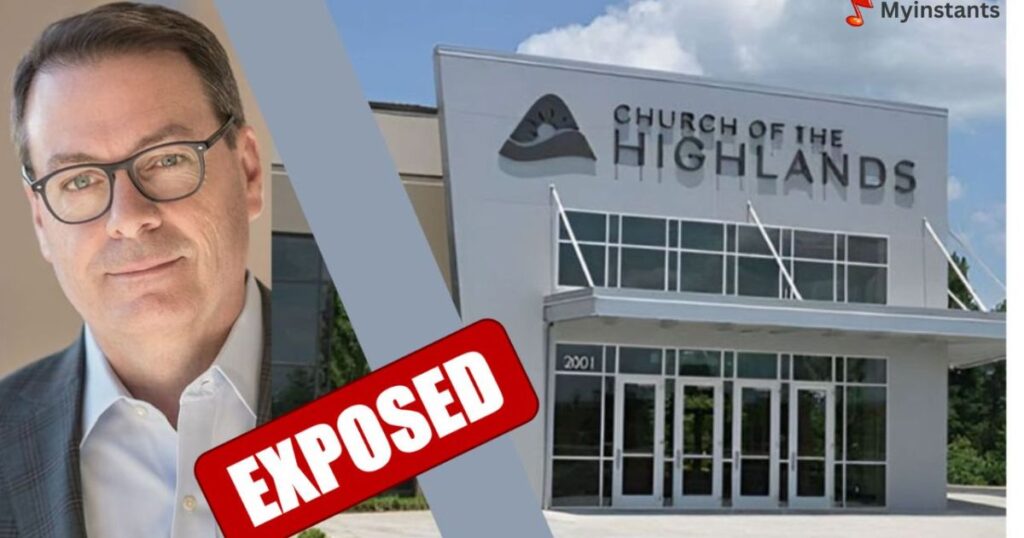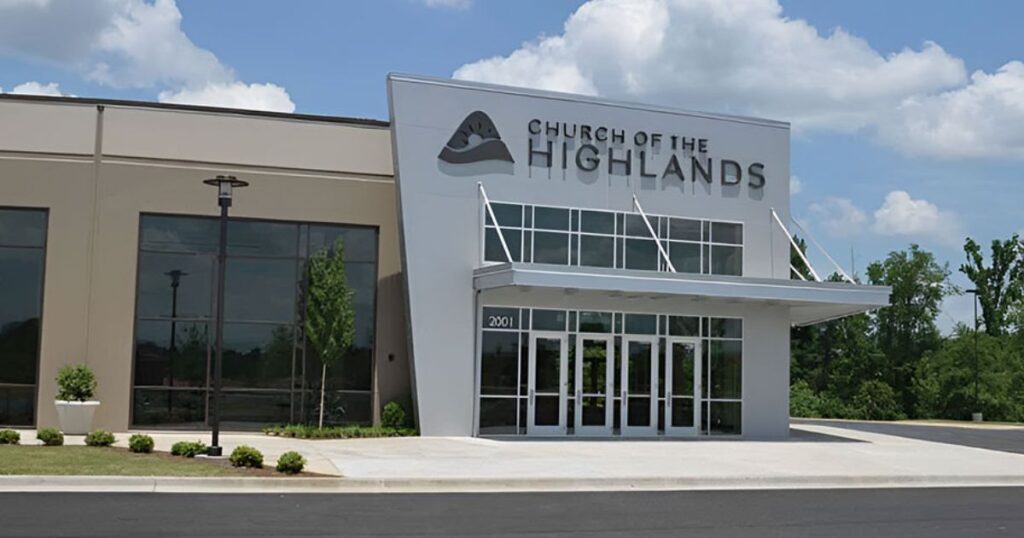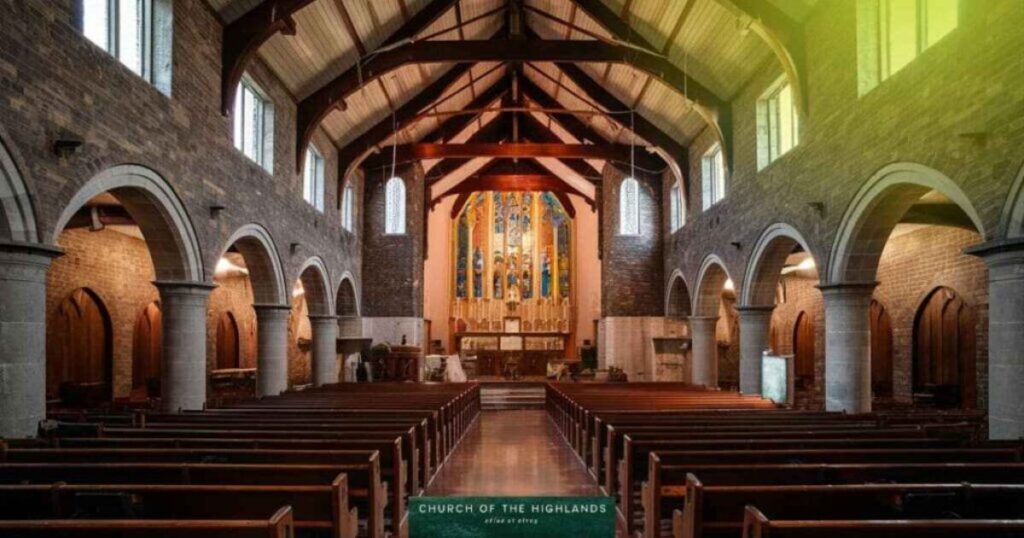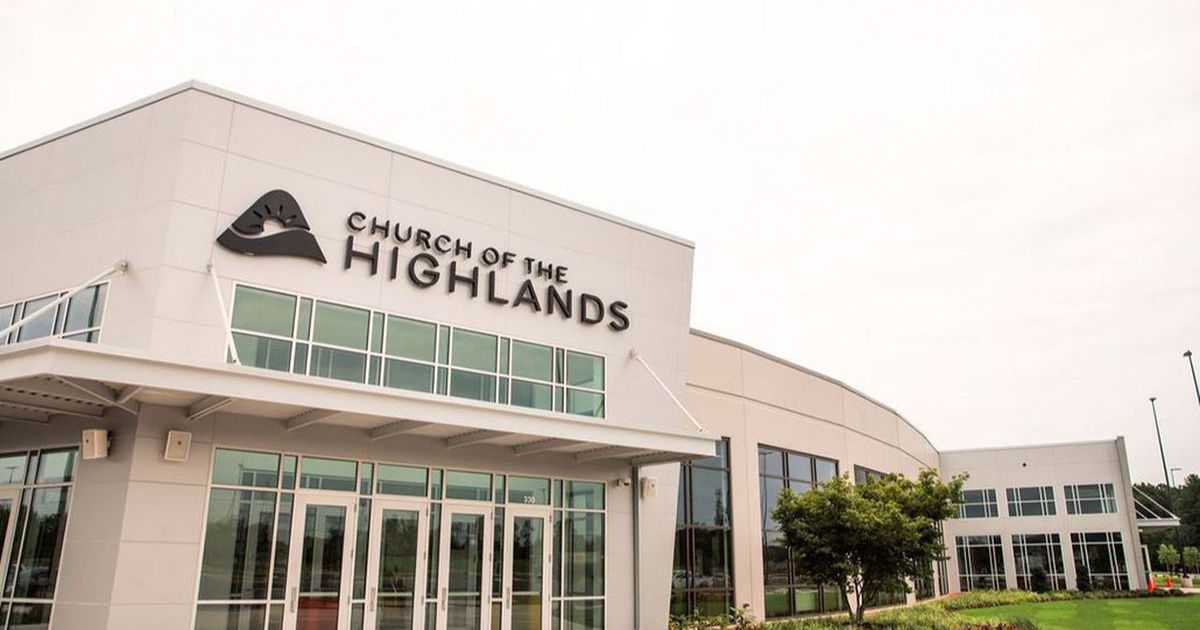The Church of the Highlands, a prominent megachurch based in Birmingham, Alabama, has recently found itself at the center of a controversy that has shaken its foundations and raised questions about leadership, accountability, and the role of politics in religious institutions.
At the heart of this scandal is Pastor Chris Hodges, the church’s founder and senior pastor, whose actions have sparked debate and division within the community and beyond. Founded in 2001, the Church of the Highlands has multiplied under Hodges’ leadership.
With its modern approach to worship and emphasis on community outreach, the church has attracted tens of thousands of followers across multiple campuses. However, this growth and influence have also brought increased scrutiny and criticism.
Church of The Highlands Exposed
The Church of the Highlands has long been known for its dynamic worship services, extensive community outreach programs, and rapid expansion across Alabama and beyond. However, recent events have shed light on potential issues lurking beneath the surface of this seemingly successful religious organization.
Critics argue that the church’s emphasis on growth and influence may have come at the cost of transparency and accountability. Questions have been raised about financial practices, leadership structure, and the church’s true impact on the communities it serves.
The exposure of these concerns has led to a broader examination of megachurch culture and the potential pitfalls of rapid institutional growth in religious settings. It has prompted many to reevaluate their perceptions of the Church of the Highlands and its leadership.
Read More About: Atleast or At Least- Correct Usage
Is Chris Hodges the Establishing and Top Leader of the Chapel of the High Countries?
Chris Hodges is indeed the founding pastor and senior leader of the Church of the Highlands, having established the church in 2001 with a small group of families. His vision and leadership have been instrumental in the church’s growth and expansion over the past two decades.
Under Hodges’ guidance, the Church of the Highlands has become a multi-campus organization with a significant presence throughout Alabama. His charismatic preaching style and emphasis on practical application of biblical principles have attracted a large and devoted following.
However, Hodges’ role as the top leader has also meant that he bears ultimate responsibility for the church’s decisions and actions, including those that have led to recent controversies.
What Does the Church of the Highlands Believe?

The Church of the Highlands adheres to a belief system that aligns with mainstream evangelical Christianity. They emphasize the importance of a personal relationship with Jesus Christ and the authority of the Bible as God’s word.
The church’s teachings focus on the practical application of biblical principles in daily life, with an emphasis on personal growth, community service, and spreading the Christian message. They also place a strong focus on the power of prayer and the importance of worship.
While these beliefs are generally in line with many other evangelical churches, the recent controversy has raised questions about how these beliefs are applied in practice, particularly in relation to issues of social justice and racial equality.
Chris Hodges’ Success and Influence
Chris Hodges’ success as a pastor and church leader is undeniable, having built the Church of the Highlands into one of the largest and most influential churches in the Southeast. His folksy, relatable preaching style has resonated with many, particularly younger generations.
Beyond his role at the Church of the Highlands, Hodges has gained influence in the broader evangelical community through speaking engagements, books, and leadership training programs. He has been seen as a model for church growth and community engagement.
However, with great success and influence comes increased responsibility and scrutiny. The recent scandal has highlighted the potential dangers of concentrating too much power and influence in the hands of a single charismatic leader.
Potential Causes & Enabling Factors
The scandal surrounding Chris Hodges and the Church of the Highlands can be attributed to several potential causes and enabling factors. One significant factor may be the lack of robust accountability structures within the church organization.
The rapid growth of the church may have outpaced the development of necessary checks and balances, allowing for potential blind spots in leadership decision-making. Additionally, the cultural and political climate.
Furthermore, the widespread influence and popularity of the church may have created an environment where criticism or questioning of leadership was discouraged, allowing problematic behaviors or attitudes to go unchecked.
Aftermath and Response

In the wake of the scandal, the Church of the Highlands has faced significant backlash from various sectors of the community. Partnerships with local government and community organizations have been severed, impacting the church’s outreach programs.
Chris Hodges has issued public apologies and pledged to engage in listening and learning to address the concerns raised. The church leadership has also announced plans for diversity training and a review of internal policies and practices.
However, for many critics, these responses have been seen as insufficient, calling for more substantial changes in leadership and church culture. The long-term impact on the church’s reputation and membership remains to be seen.
Read More About: Adam Sandler Net Worth: Comedy King’s Riches Exposed!
Response From Supporters
Despite the controversy, Chris Hodges and the Church of the Highlands have retained a significant base of support. Many longtime members and fellow evangelical leaders have come to Hodges’ defense, citing his years of service and the positive impact of the church.
Supporters argue that Hodges’ actions have been misinterpreted or taken out of context and that the church’s track record of community service should outweigh the current controversy. They emphasize the importance of forgiveness and second chances in Christian teaching.
However, this support has also highlighted divisions within the church and the broader community, raising questions about the role of loyalty and critical thinking in religious institutions.
The Crucial Element of Trust
Trust is a fundamental element in any religious organization, and the current scandal has significantly eroded trust in the Church of the Highlands’ leadership. Rebuilding this trust will be crucial for the church’s future.
Transparency in decision-making processes, genuine efforts at inclusivity and diversity, and a willingness to engage in difficult conversations will be necessary steps in regaining the trust of disillusioned members and the broader community.
The Complexity of Scandal

The scandal surrounding Chris Hodges and the Church of the Highlands highlights the complex nature of leadership failures in religious institutions. It involves issues of race, politics, power dynamics, and the intersection of personal beliefs with public responsibilities.
This complexity makes it challenging to find simple solutions or easy answers. It requires a nuanced understanding of the various factors at play and a willingness to engage with difficult questions about the role of churches in society.
Is Chris Hodges Conservative or Liberal?
Chris Hodges’ political leanings have come under scrutiny in light of the recent controversy. While Hodges has not explicitly aligned himself with a particular political party, his actions and associations have led many to perceive him as politically conservative.
The scandal that sparked the current controversy involved Hodges liking social media posts from conservative political figures, suggesting at least some alignment with conservative viewpoints.
This situation highlights the challenges religious leaders face in navigating the increasingly polarized political landscape and the potential consequences of perceived political bias in spiritual leadership.
The Road Ahead
The path forward for Chris Hodges and the Church of the Highlands remains uncertain. The church faces the challenge of addressing the concerns raised by the scandal while maintaining its core mission and values.
Meaningful change will likely require a commitment to diversity and inclusion at all levels of church leadership, increased transparency in decision-making processes, and a willingness to engage in ongoing dialogue with critics and supporters alike.
The actions taken by Hodges and the church leadership in the coming months and years will be crucial in determining the long-term impact of this scandal on the church’s influence and reputation.
Read More About: Inside an Activision Ban Appeal: Strategies for a Favorable Outcome
FAQs
What sparked the recent controversy surrounding Chris Hodges?
The controversy began when Hodges was found to have liked social media posts from conservative figures accused of promoting racist ideologies.
How has the Church of the Highlands responded to the scandal?
The church has issued apologies, pledged to engage in diversity training, and announced a review of internal policies and practices.
What impact has the scandal had on the church’s community partnerships?
Several local government and community organizations have severed ties with the church, affecting its outreach programs.
How has the scandal affected church membership?
While some members have left the church in response to the controversy, many others have remained supportive of Hodges and the church leadership.
What steps is the church taking to address concerns about diversity and inclusion?
The church has announced plans for diversity training and a review of leadership structures to ensure better representation.
Conclusion
The scandal surrounding Pastor Chris Hodges and the Church of the Highlands serves as a stark reminder of the complexities and challenges facing modern religious institutions. It highlights the delicate balance between growth and accountability, as well as personal beliefs and public responsibilities.
As the church navigates this turbulent period, its actions will not only shape its future but may also influence the broader landscape of megachurches and religious leadership in America. The coming months and years will be crucial in determining whether the Church of the Highlands can emerge from this controversy stronger.










